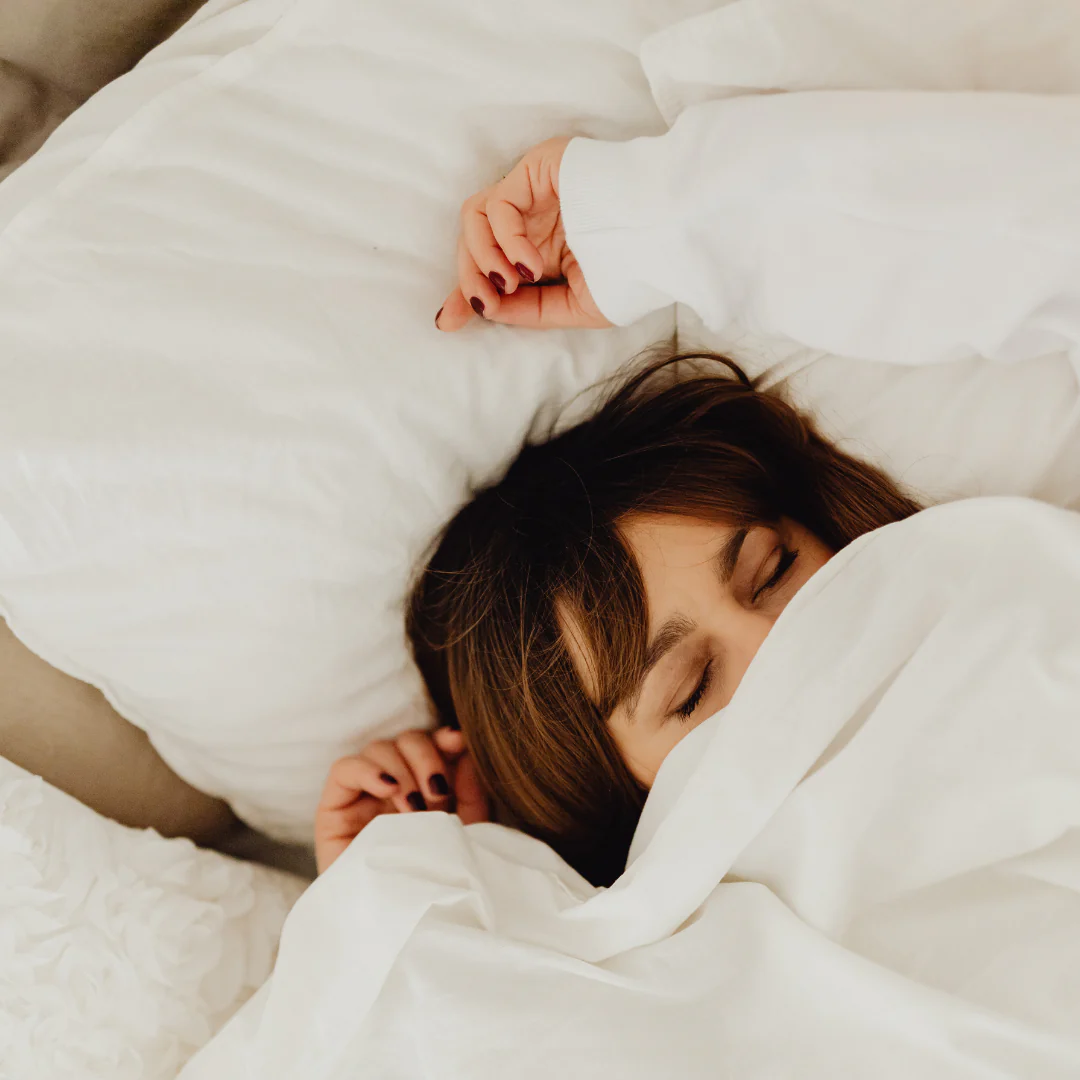Sleep & Light: Natural Regulation & Bedroom Lighting
Explore the vital role of light in sleep quality, uncovering the impact of bedroom lighting, screens, and natural sleep regulation. Discover practical tips for optimizing your sleep environment and understanding how light affects your rest.
Source: Someone sleeping with some light in the room
A good night's sleep is vital for our overall health and well-being. Alongside factors such as proper nutrition and regular exercise, sleep quality is also influenced by the environment in which we sleep.
Discover the link between light and quality sleep in our informative article.
We'll explore the natural mechanisms that regulate our sleep, highlight the significance of bedroom lighting, and reveal the latest findings from esteemed sleep journals on screen time before bed. Get ready to improve your sleep hygiene!
1. Natural Sleep Regulation:
Understanding the natural regulation of sleep is crucial to optimizing sleep quality.
Did you know that working on your computer late at night can disrupt your sleep and cognitive abilities?
Research conducted by the Journal of Applied Physiology revealed that exposure to the blue light emitted by LED screens can negatively impact our circadian rhythm and cognitive performance. This means that our precious sleep can be harmed by our technology habits.
On the bright side, studies published in Sleep Medicine Reviews show that getting enough bright light during the day can help improve our sleep quality and duration. So, make sure to get some daylight, and consider changing your evening screen habits if you want to get a better night's sleep.
Melatonin, a hormone involved in sleep regulation, plays a vital role in this process. As reported in the Journal of Clinical Endocrinology & Metabolism, melatonin levels decrease during the day, promoting wakefulness and alertness. Conversely, as the sun sets and light diminishes, our bodies naturally begin to produce melatonin, signaling the onset of sleep.
Optimize Your Sleep Quality and Well-Being by Aligning with Your Natural Sleep-Wake Patterns.

Source: Someone to rest in bed next to a window that transmits natural light
2. Bedroom Lighting:
The intensity of light in the bedroom has a substantial impact on sleep quality.
Discoveries from Sleep Medicine Reviews reveal that people who are exposed to high levels of light in their bedrooms do not sleep as well. This conclusion is backed up by numerous studies, which have identified a link between light and poor sleep quality. Another study published in the same journal also found that exposure to light before bedtime interferes with the production of melatonin, a hormone which helps regulate sleep.
The correlation between bedroom lighting and sleep quality is attributed to the influence of light on our circadian rhythm.
Did you know that bright lights in the evening can prevent you from getting a good night's sleep? Suppressing the production of melatonin, this common issue can make it challenging to both fall asleep and stay asleep. To ensure a restful night's sleep, it's best to limit exposure to bright lights before bedtime.
Ditch the bright lights for a sound sleep! Creating the perfect sleep setting requires a dark room free from external light sources. This can be easily achieved by using curtains or blinds. Additionally, limit bright LED lights from electronics and indulge in softer, warm-colored lighting in your bedroom.
Increase the quality of your sleep by creating a calming, dark atmosphere in your bedroom. Achieve a more restful and refreshing night's rest with this simple approach.

Source: Someone sleeping next to a window with curtains that diminish the intent of sunlight
3. Screens and their Impact on Sleep:
The use of electronic screens before bedtime has become increasingly prevalent in today's society. However, studies have revealed that this habit can have detrimental effects on sleep quality.
One of the primary concerns is the exposure to blue light emitted by screens. Research shows that blue light suppresses the production of melatonin, which is a hormone responsible for regulating our sleep-wake cycles. So next time you're scrolling through your phone at bedtime, keep in mind that it could be affecting your ability to sleep well. When melatonin levels are disrupted, it can lead to difficulties in falling asleep and maintaining a restful sleep throughout the night.
A study published in the journal Chronobiology International examined the effects of blue light exposure on sleepiness during nighttime performance testing. The findings indicated that exposure to blue light reduced objective measures of sleepiness, further highlighting the potential impact of screens on sleep quality.
It's best to avoid electronic devices for at least an hour before bedtime. This helps your body relax and encourages the production of melatonin, leading to a better and more restoring sleep experience.
By making a few simple changes to your screen time routine, you can vastly improve your sleep quality and overall health.

Source: Someone sleeping next to the phone
Conclusion:
Light plays a fundamental role in the natural regulation of sleep.
According to studies published in reputable sleep journals, exposure to bright light during the day helps regulate our circadian rhythm, while minimizing light and screen usage before bed promotes the production of melatonin and improves sleep quality.
By implementing these evidence-based practices, we can create an optimal sleep environment, leading to better overall health and well-being.








Leave a comment
This site is protected by hCaptcha and the hCaptcha Privacy Policy and Terms of Service apply.